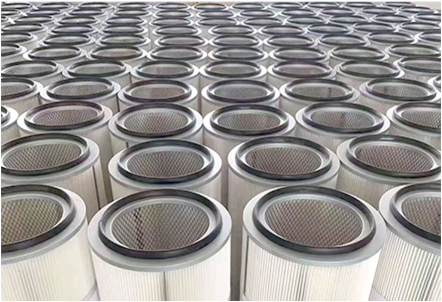 Tel:
+8615930870079
Tel:
+8615930870079
نوفمبر . 02, 2024 01:52 Back to list
cartridge oil filter
Understanding Cartridge Oil Filters A Vital Component in Engine Maintenance
Cartridge oil filters play a crucial role in the overall performance and longevity of modern vehicles. As engines operate, they generate heat and friction, which leads to the creation of harmful contaminants within the engine oil. These impurities can significantly hinder the effectiveness of the oil, making it essential to utilize an efficient filtration system. Cartridge oil filters serve as the line of defense against such contaminants, ensuring that the engine remains healthy and efficient.
Structure and Functionality
A cartridge oil filter consists of several key components the filter element, the outer casing, and the sealing gaskets. The filter element, often made from pleated paper or synthetic materials, provides a large surface area for capturing dirt particles, metal shavings, and soot. The outer casing, typically made of metal or durable plastic, protects the filter element and ensures structural integrity under high pressure. Sealing gaskets prevent leaks, ensuring that all the oil passes through the filter before circulating back into the engine.
When oil is pumped from the oil pan through the oil pump and into the filter, it first travels through the filter element. As the oil flows, contaminants are trapped within the fibers of the filtering material, allowing only clean oil to enter the engine. This process not only keeps the oil clean but also prolongs the life of other critical engine components by minimizing wear and tear.
Importance of Regular Maintenance
Regular maintenance, which includes timely oil changes and filter replacements, is vital for optimal engine performance. Over time, cartridge oil filters can become saturated with contaminants, reducing their efficiency. A clogged filter can lead to a decrease in oil pressure, resulting in inadequate lubrication, overheating, and ultimately, severe engine damage.
cartridge oil filter

Most vehicle manufacturers recommend replacing the oil filter at every oil change, which is usually every 3,000 to 5,000 miles, depending on the car and oil type. Some high-mileage vehicles or those using synthetic oils may extend this interval. However, it is always best to refer to the owner's manual for specific recommendations.
Choosing the Right Cartridge Oil Filter
When it comes to selecting a cartridge oil filter, quality is paramount. While it might be tempting to opt for cheaper alternatives, investing in a high-quality filter can prevent future headaches. Top-tier filters often feature superior materials and construction, offering better filtration capabilities and durability.
Reputable brands often provide filters that meet or exceed the OEM (Original Equipment Manufacturer) specifications, ensuring they are suitable for your specific vehicle make and model. Additionally, look for features like anti-drainback valves, which prevent oil from draining back into the sump when the engine is off, ensuring immediate lubrication upon startup.
Conclusion
In conclusion, cartridge oil filters are vital for maintaining engine health and efficiency. They protect against the harmful effects of contaminants present in engine oil, thus safeguarding the engine's integrity. Regular maintenance, including timely replacements of both the oil and the filter, is essential for vehicle longevity. By choosing high-quality filters and adhering to maintenance schedules, drivers can ensure their vehicles run smoothly and reliably for years to come. Investing in proper filtration is not just a recommendation; it's an essential part of responsible vehicle ownership.
-
Nano Fiber Technology: Revolutionizing Cartridge Dust Collector FiltersNewsAug.06,2025
-
How Activated Carbon Air Cartridges Eliminate OdorsNewsAug.06,2025
-
Dust Filter Cartridge Handling Fine Particulate MatterNewsAug.06,2025
-
Cartridge Dust Collector Filter for Welding Fume ExtractionNewsAug.06,2025
-
Activated Carbon Filter Cartridge Effectiveness Against VOCsNewsAug.06,2025
-
Activated Carbon Air Filter Cartridge Benefits ExplainedNewsAug.06,2025

 Email:
Email:





